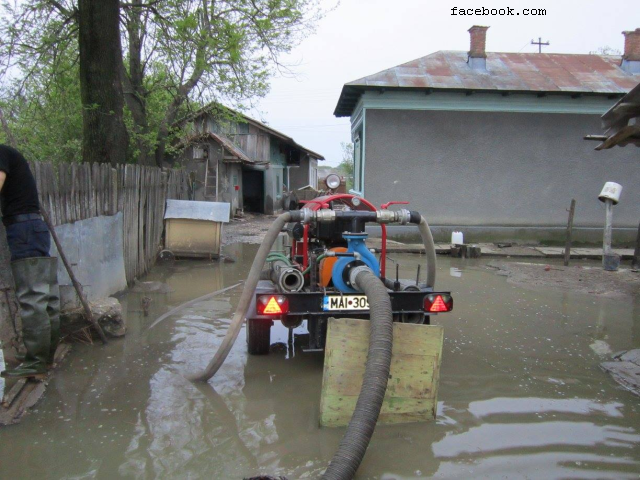The effects of rain showers and storms
Romania is facing severe weather phenomena, such as rainfalls, thunderstorms, gusty wind and hailstorms.

Roxana Vasile, 15.06.2018, 13:07
Antarctica is heading for disaster at high speed. This is the conclusion of an international expert team that has conducted a study whose worrying results have been made public recently. The document is launching an alarm signal as to the future of planet Earth. According to the scientists, the white continent situated at the South Pole has lost some three trillions tons of ice since 1992, which is enough to raise the level of oceans by some eight millimetres, and this tendency has increased dramatically over the past five years. Furthermore, if the phenomenon is not contained in due time, hundreds of millions of people leaving in low coastal areas are in danger. This is not the only effect produced by global warming, unfortunately considered to be a futile issue even by some top-level decision-makers.
To the Romanians, Antarctica is geographically situated at the far end of the globe, and alarming information coming from there fades away, in keeping with the distance which separates the two areas. However, when the Romanians are facing extreme weather phenomena, atypical for Romania’s temperature continental climate, they become increasingly aware of the situation and start asking questions on the dangers looming ahead. For some time now, spring and autumn are almost non-existent, summers are unusually hot, in winter snow has almost vanished in some regions of the country and tornadoes have also been spotted in Romania.
Right now, against the backdrop of temperatures exceeding normal values for this time of the year, Romania is facing extreme weather phenomena, such as rainfalls, thunderstorms, gusty wind and hailstorms. Heavy rainfalls and gusty wind have severely affected several regions of the country. Basements, cellars, streets and parking lots in several towns have been submerged. Tens of trees have fallen on cars and electricity lines, roofs have been swept away by the wind and many fires have been started by lightning strikes. Many households in the countryside have been flooded. Electricity has also been disrupted in places. In the field, hailstorms have destroyed maize, wheat and sunflower cultures on hectares. Egg-sized hail has produced extensive damage in several towns and communes in the west of the territory, where roofs and cars have been severely affected. Heavy railroad traffic was reported in places.
Code red, orange and yellow alerts have been issued for hydrographical basins in almost three quarters of the country. The Interior Ministry has announced that over 3,300 firelighters have been mobilised to intervene in the affected areas. In brief, the weather picture is not one of the best at the moment, with fickle weather still gripping the whole country until Saturday.






























